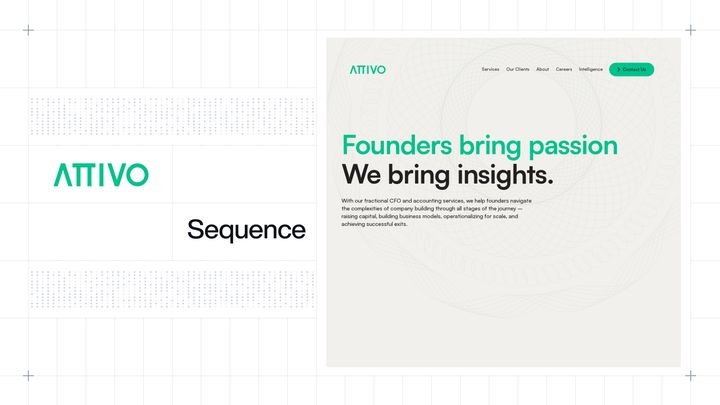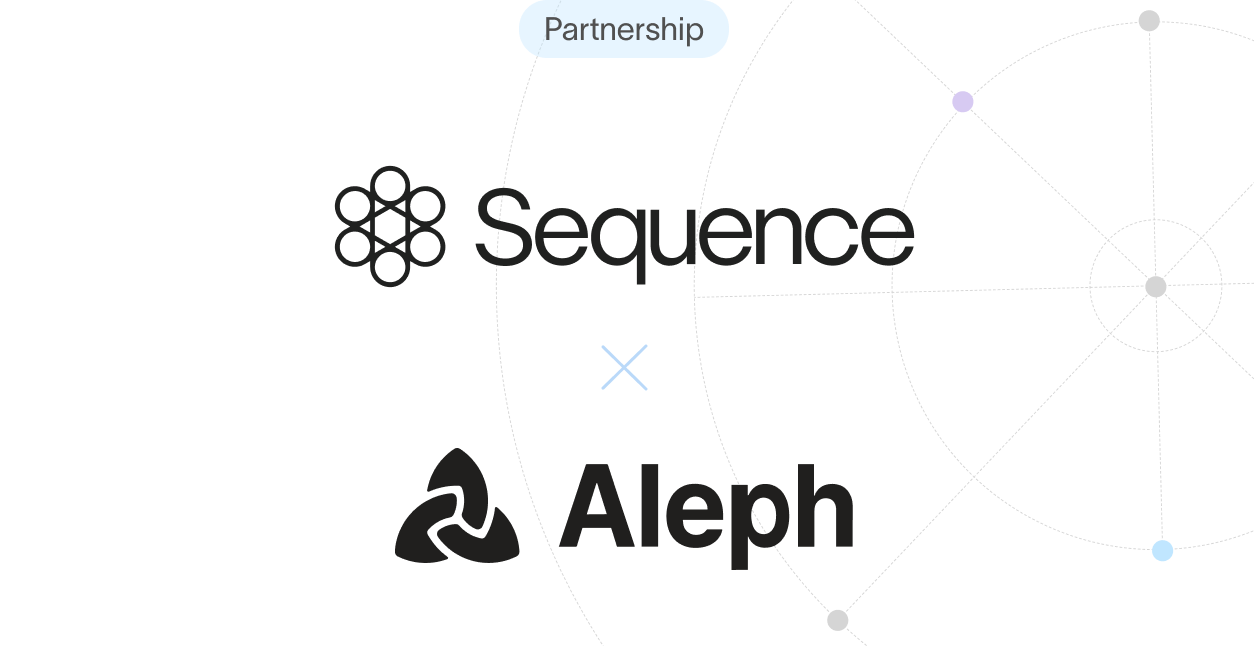Enda Cahill
When to bring in financial expertise: lessons from Attivo Partners
We recently sat down with Rebecca Lee, Co-Founder at Attivo Partners. With 20 years in the field, Rebecca gave a masterclass on how growing companies should think about scaling their finance team and tooling.

Attivo specializes in accounting and financial consulting for early-stage venture-backed startups, with an ideal customer profile spanning pre-revenue to $30M ARR (though 15% of their clients exceed $30M, with several above $100M). With 20 years in the field, Rebecca shared insights that every founder should consider when building and scaling their finance org.
The triggers that cause leaders to seek financial help
Companies typically reach out to Attivo for one of 5 reasons:
Just raised a new round: Founders need their accounting tech stack set up properly from day 1. "We help set up that accounting foundation so the CEO can focus on customers and product," Rebecca explains. Attivo will typically enter at this point and lay the financial foundation, including AP vendor systems, accounting software, and payroll setup.
Investor recommendation after funding: VCs want assurance that invested capital gets managed professionally. This often includes treasury management and spend optimization guidance.
Preparing for fundraising: companies need financial models to tell their story to potential investors. Attivo's fractional CFOs help prepare these models and can introduce founders to their VC network.
Scaling with repeatable revenue: around Series B or C, companies need to ensure revenue recognition follows ASC 606 standards and understand the difference between COGS and OpEx to optimize gross margins.
Audit preparation: when investors require audited financials (typically around Series B), companies need their books audit-ready and support working with external auditors.
Laying the financial foundations early (hint: repeat founders have learned the hard way)
"The most painful and common mistake is when founders try to cut corners and be too lean initially," Rebecca says. Companies go with cheaper firms to save money in the first two years, where they receive comparatively little attention, rigour and engagement vs a more focused firm like Attivo. When they hit major milestones like fundraising or audits, they discover their books aren't ready. "They end up spending 2-3x more trying to clean up the mess."
Rebecca interestingly notes that repeat founders take a different approach. They reach out to Attivo before they even get initial funding because they've learned how painful it is to try and play catch up at Series A/B stage when the reporting foundations haven’t been built. Worth noting that this also makes them much more agile in fundraising when the timing is right as they don’t need to pay the upfront cost of 1-2 months reporting prep to be ‘funding-ready’.
How Rebecca and Attivo consider tooling at each revenue milestone
0 to $1M: focus on core accounting infrastructure. You need a proper P&L, expense processing systems (Bill.com, Ramp, Mercury, Brex), and reliable payroll.
$1M to $10M: You'll trigger compliance requirements and get on agencies' radar. Sales tax compliance becomes critical, along with proper revenue reporting infrastructure to tell your company's story accurately. "It's garbage in, garbage out," Rebecca notes. "You want to make sure whatever you're feeding into your reporting system is accurate."
$10M to $100M: At this stage, the basics should be sorted and the focus shifts to establishing more sophisticated controls and review processes. Basically becoming more audit-ready, as some fast growing teams begin to consider potential exit options at this point. This means establishing segregation of duties, proper reconciliation procedures, and systems to identify red flags before they become problems.
Avoiding the main blind spots observed in almost every new client
When Attivo starts working with new clients, they discover the same issues repeatedly:
Tax compliance gaps: tax notices from state agencies and the IRS pile up in the "shoe box" while founders focus on building their core product.
GAAP reporting discrepancies: revenue recognition doesn't follow proper standards (ASC 606 / IFRS 15), often leading to inconsistent reporting which boards notice as teams scale
Equity reconciliation: equity isn't properly reconciled with the cap table. Later stage VCs can get concerned and at the very least, founders need to spend too much time trying to get a clear picture and story to communicate to future investors.
Missing documentations / journal integrity: lack of proper account reconciliations to support financial figures, creating material audit risks down the line. This often strikes overwhelm into founders who don’t have the time or capacity to engage with this, and this is where costs quickly add up, as they panic hire an external advisor or inhouse hire to run an emergency clean up ahead of a raise / buyer DD.
When to make your first finance hire
The decision depends on team size, business complexity, and revenue mix rather than following a one-size-fits-all rule. Rebecca gives two contrasting examples: "A $10 million enterprise SaaS company with two to three customers and 10 employees might be fine with fractional support for a longer period. On the flip side, a $1 million SMB CPG company with inventory, 50 employees, and high transaction volume might benefit from an in-house hire much earlier."
As a general benchmark, Rebecca suggests Series B, $5 million in revenue, and about 75 employees as the typical inflection point for bringing on a full-time finance person.
… but AI can (and will) push back this timing
AI is changing when companies need their first full-time finance hire. "AI is helping us automate repetitive tasks and allowing team members to focus more on strategic forecasting and reviewing audit red flags surfaced by AI recommendations," Rebecca explains. She expects the timing of that first hire to get pushed out as AI handles more tactical work.
For example, technical accounting questions that once required reading through dense ASC documentation from KPMG or Deloitte can now be answered quickly through ChatGPT, which provides comprehensive answers with full source citations alongside for convenient auditing.
AI tooling actually deliver measurable value today
Attivo tests new AI products through their dedicated Innovation Team. A few tools stood out for delivering real results to clients:
Aleph streamlines financial updates. Instead of repeatedly exporting from QuickBooks, making changes, and re-exporting, Aleph lets teams update financials with a simple refresh button.
Causal and Mosaic help with financial modeling for early-stage clients who need basic models without investing in more robust platforms that take 3-6+ months to implement..
Puzzle and Campfire offer entry-level accounting software that costs less than traditional options but offers much slicker UIs and better automation capabilities, especially for lean teams with relatively simple accounting operations.
Attivo treats AI as a copilot for finance operators, not a replacement
Rather than seeing AI as competition, Attivo embraces it as a tool to serve finance leaders as a copilot, accelerating their day to day productivity. "We see it as allowing us to do a better job, serve our clients better, add more value," Rebecca says. Their team uses AI for transactional processing while spending more time on forward-looking analyses, board reporting/prep and more strategic input for the C-level team to consider.
Additional note from Sequence
As many are now concluding, AI is not going to take your job (especially as a strategic finance leader), but someone leveraging AI will if you’re sitting back not taking full advantage of the tools available today. The only way to get to that point is to be open to testing and seeing what sticks. Many of us arrived at the ‘Aha moment’ after trying and failing different ways of playing with Claude and GPT. Setting a conservative goal of improving by 5% each week (which is conservative in today’s environment) is a helpful way to build momentum, without feeling like you need to 10x your productivity with complex workflow builders from week 1.
Enda Cahill
Related articles

Sequence + Aleph: Modern Finance Stack for Billing and FP&A
As finance teams scale, the gap between operational execution and strategic planning creates friction. Billing data lives in one system. Planning and forecasting live in another. Someone on the finance team ends up manually bridging the two. Sequence is partnering with Aleph to help close that gap.
Donal McKeon

Building Investor-Grade Finance from Day One: Stratix Advisory
Brian Coburn and Syed Ahsan spent years running diligence on hundreds of deals. Now at Stratix Advisory, they build finance functions for venture-backed companies from an investor's perspective—anticipating diligence questions before they're asked and using tools like Sequence to automate revenue recognition.
Donal McKeon

From Engineering to the CFO Seat: Johnnie Walker on Building Rooled
Johnnie Walker started his career as an engineer at BAE Systems. Now he co-runs Rooled, an outsourced finance and accounting firm serving venture-backed startups from incubation through Series D, with clients including Slack, Pinterest, Lithic, and Rocket Money. That journey through sales, teaching impact investing at Columbia Business School, and years in the fractional CFO trenches gives him a distinctive lens on what it takes to succeed in this space and how finance leaders can set themselves up for success making the leap.
Donal McKeon